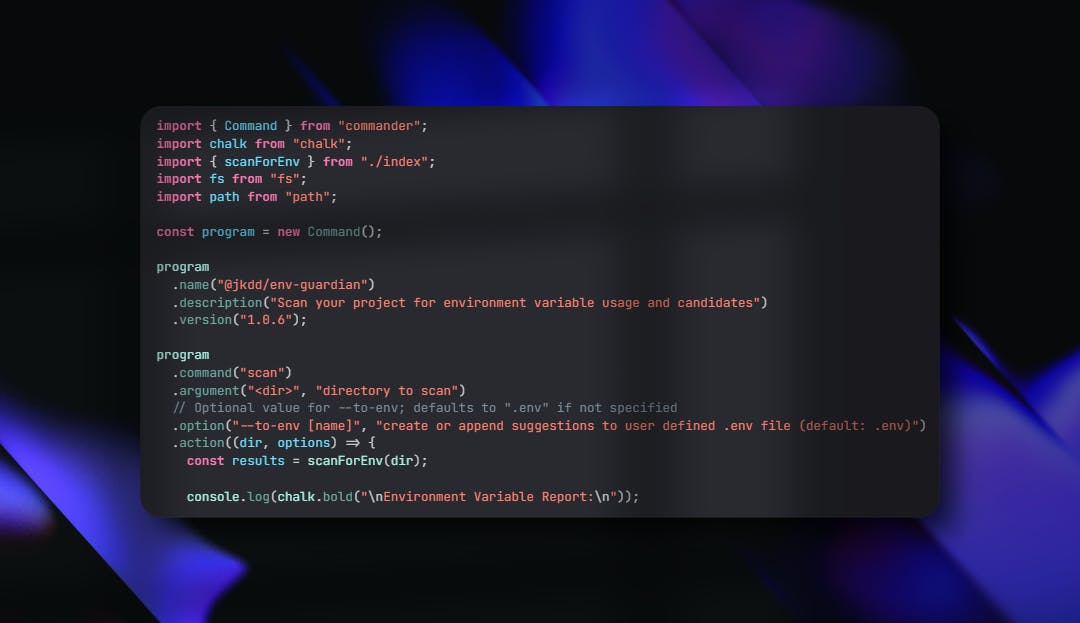
Make Sure Your Secrets are Safe with @jkdd/env-guardian
2025-08-20
Managing environment variables can be tricky, especially as projects grow. @jkdd/env-guardian helps you scan your project for used and suggested environment variables, and optionally creates or updates a .env file. This guide will walk you through using it in a local React.js project.
1. Set Up a React.js Project
If you don’t already have a React project, create one using Vite or Create React App:
# Using Create React App
npx create-react-app my-app
cd my-appYour project structure will look like this:
my-app/
├─ src/
├─ public/
├─ package.json
└─ README.md2. Install @jkdd/env-guardian
You can install the package locally for your project:
npm install --save-dev @jkdd/env-guardianOr globally if you want to use it in multiple projects:
npm install -g @jkdd/env-guardian3. Scan Your Project for Environment Variables
Run the scan command to see what environment variables are used in your project:
env-guardian scan ./srcYou’ll see a report like:
Environment Variable Report:
Existing Environment Variables:
✔ REACT_APP_API_URL (used in: api/index.js)
⚠ Suggested Environment Variables:
apiKey (found in: utils/auth.js)This output tells you which variables are already in use and which ones you might want to add.
4. Create or Update a .env File
To automatically add suggested variables to a .env file in your project root:
env-guardian scan ./src --to-env- By default, it creates or updates .env in the root folder.
- If your project uses Next.js, it can also create a .env.local file by passing the option:
env-guardian scan ./src --to-env --env-file .env.localThe .env file will now include any suggested variables:
# Suggested by env-guardian
apiKey=5. Verify Your .env File
Open .env in your project root. You should see all the suggested environment variables added by env-guardian. You can now safely fill them in with real values.
6. Optional: Automate With npm Scripts
You can add a script to your package.json to make scanning easier:
{
"scripts": {
"env:scan": "env-guardian scan ./src --to-env"
}
}Now you can run:
npm run env:scanThis will scan your project and update your .env file automatically.
Conclusion
Using @jkdd/env-guardian helps you:
- Detect existing environment variables.
- Suggest new ones based on usage in your code.
- Automatically create or update .env files.
- Keep your environment variables organized and safe.